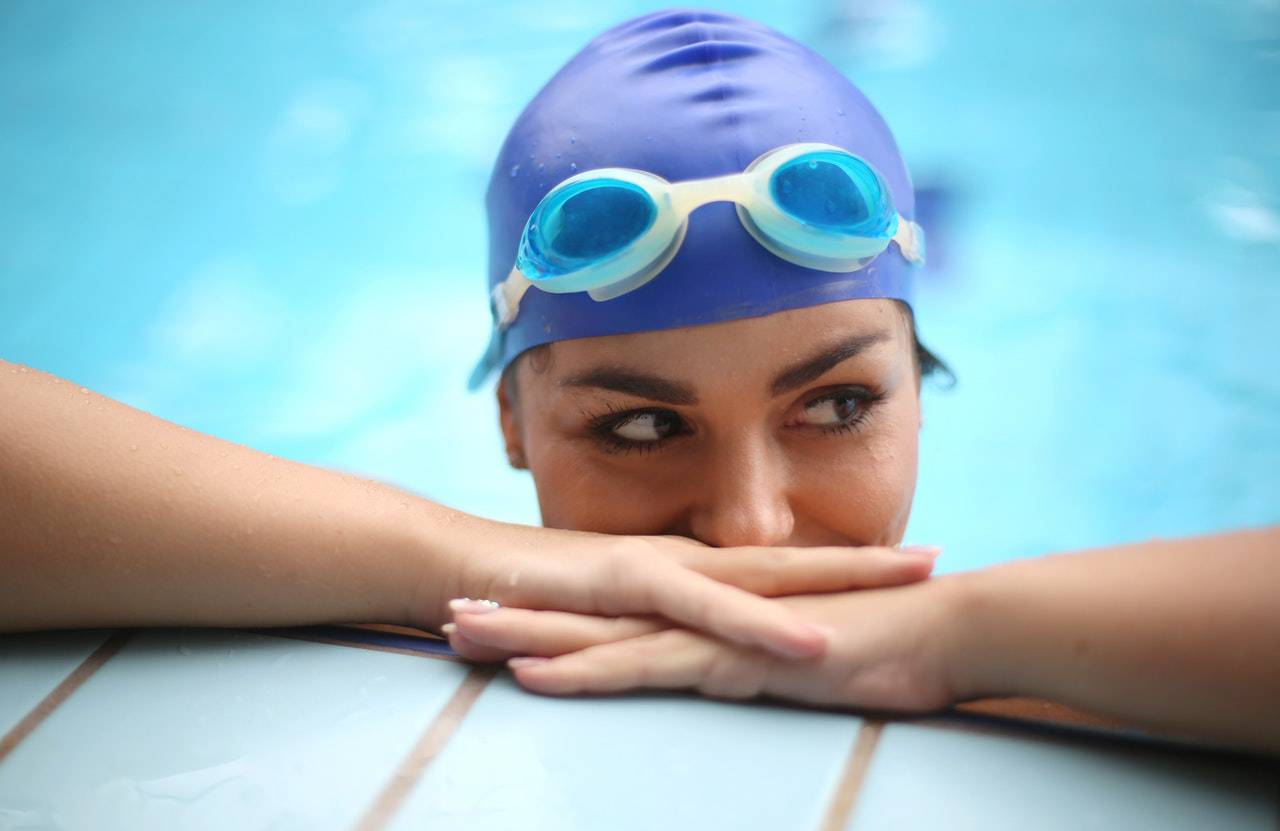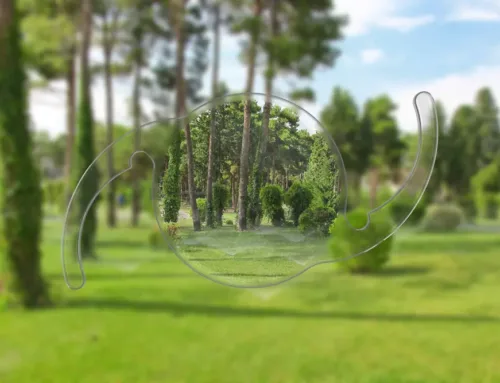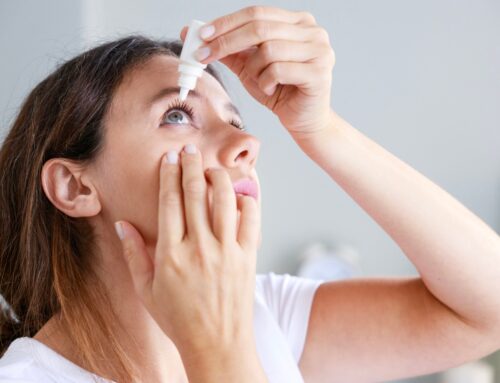The week before Memorial Day marks Healthy and Safe Swimming Week, an annual awareness week that aims to prevent drowning, pool chemical injuries, and illness outbreaks. This year, Eye Care Professionals encourages our patients to pay special attention to their contact lens habits, particularly if they’re thinking about swimming with contact lenses.
Is it safe to wear contact lenses in water?
No! If you’re thinking about dipping into a pool, lake, or ocean this summer, you should remove your contact lenses first.
Water – even seemingly clean water – can contain countless microbes and viruses. Most of the time, your eyes naturally fight these invaders by blinking them away. When you’re wearing contact lenses, these foreign organisms can get stuck between your eye and the lens, leading to irritation, infections, or even conditions that can permanently harm your vision.
- Acanthamoeba keratitis: Acanthamoeba keratitis is a rare, but serious condition in which an organism known as Acanthamoeba infects the cornea, leading to inflammation and potential corneal scarring. If not caught early, people with this condition may need a corneal transplant to recover their lost vision.
- Corneal ulcer: A corneal ulcer is an open sore on the cornea, typically caused by an infection. Symptoms of corneal ulcers include pus or discharge, blurred vision, redness, severe pain, and a persistent sensation of having something in your eye. Some people may also notice a white spot on their cornea.
In addition, water can dislodge rigid gas permeable contact lenses or cause soft contact lenses to tighten around the eye. Both instances can lead to significant discomfort or worse – scratches on the surface of your eye.
What should I do if I swim in my contacts?
If water gets in your eye while swimming with contact lenses, you should immediately remove, clean, and disinfect the lenses. You should also rinse your eyes with rewetting drops or artificial tears.
Some doctors recommend throwing them away entirely. If you frequently swim while wearing contact lenses, daily disposable lenses may be the safest – and the most economical – option.
The best way to swim while still wearing your contacts is to invest in waterproof swim goggles. A good pair of goggles can protect your eyes from waterborne contaminants, as well as reduce the risk of your contacts dislodging or scratching your eyes. It’s also possible to purchase prescription swimming goggles that are custom-designed to correct your vision.
When should I see my doctor?
If you go swimming without removing your contact lenses, you might experience some unpleasant symptoms:
- Redness
- Irritation
- Unusual discharge
- Light sensitivity
- Blurred vision
If you experience any of these symptoms, you should immediately remove and disinfect your contact lenses. If these symptoms last for more than a few hours, it’s time to contact your eye doctor.
Do you have any other questions about swimming with your contact lenses? Contact Eye Care Professionals today, and we’d be happy to discuss any questions you might have.











